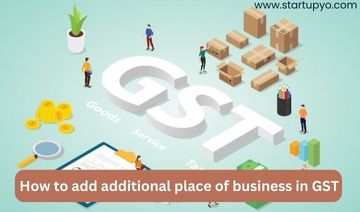Exploring the Expansive Scope of Food Technology in India
Food technology is a science that involves scientific methods in developing and designing the technologies that are associated with food processing. Food technology improves the quality as well as nutritive value of the food, it also enhances the safety of the food and maintains the proper food supply. It focuses on food processing, its ways of preserving it, and its packaging technologies.
Food scientists do research to bring better nutrition for health benefits and the shelf life of the product. It is a study of the characteristics of food, its nutritional composition, and chemical and physical reactions that change take place while processing and storage. Food technology applies many different disciplines for food processing like chemistry, microbiology, nutrition, and more. All these scientific discoveries are used to study food and improve its quality and safety.
The technology uses these scientific ways to treat the food substance and also change the food properties, these properties are changed in order to preserve the food for a longer time. Moreover, with these several methods, the quality of the food also increases and makes it more useful. With the help of this scientific knowledge, the raw food items like vegetables and materials from marine and raw animals get transformed into products that are edible. All this transformation is done with the help of machinery, scientific ways, and other food knowledge.
Read More: Top 10 Profitable Food Business Ideas In India
Indian Food Technology Sector
As per 2022 reports the Food Corporation of India has a total number of 2,199 food warehouses which are owned, as well as hired by the government of India. The top Indian states that have the maximum number of food warehouses are Punjab which has the highest number of 611, Haryana is leading at second with a total number of 297 food warehouses Haryana 297 and at last comeUttar Pradesh with 248 food warehouses.
There are 2.49 million food business operators (FBOs) in India meaning the food industry in India is a billion-dollar sector. As per the NRAI India Food Services Report 2019, these 2.49 million FBOs are providing food service with the help of different food outlets in India eg; restaurants, Indian dhabas, eateries, kiosks, and others. The scope of food technology is so high in India that the Indian food service sector is crossing 4+ crore yearly, as per a survey the food service sector of India generates Rs 4.23 lakh crore on a yearly basis.
As per FSSAI reports half of the licensed food business operators are from Tamil Nadu and Maharashtra, when we talk about licensed FBOs then Tamil Nadu has 116,000 licensed FBOs and Maharashtra has 90,530 licensed FBOs. The food service sector has paid tax in crores in 2018-19, and the food service players have paid 12% tax on the market. When we change this figure into rupees then it’s almost Rs 18,000 crore.
As per the Department of Industrial Policy & Promotion the Indian food industry is growing very rapidly, it’s estimated that the Food Processing Industry of India is going to touch USD $33 million by 2025. With this, the Indian food industry will provide various opportunities in the food business meaning a boom in job openings will be witnessed. Indian students are getting enrolled in different Food Production and Food Technology courses because in India food technology has a very vast scope and is offering the best job options in the country.
With the help of food technology every year thousands of Indian citizens are getting adjusted in Hotels, Restaurants, Hospitality, Research & Development, Agricultural Research Services, Food Safety and Inspection Services, and other different areas.
Bright Future in Food Technology
The Indian food industry is growing and is contributing 14% of GDP and the Indian export sector is contributing 13% of total food exports in India. The Indian government and private sector are in need of professionals who are trained in the food industry. There is a high demand for food technology students and hence they are eligible to join the industry just after graduation or post-graduation. Food technology students can get different jobs like Food technologist, Food Processor, Food Operationist, Food Product & Process Developer, Business Developer & Marketing analyst, Food Chain Manager, and others jobs.
There are many different food-related sectors in India that are providing job opportunities to Indian citizens, The Food Corporation of India (FCI) is hiring food technology candidates as employees, the Food Safety and Standards Authority of India (FSSAI) is providing multiple job opportunities, and State & Central Food Laboratories, are looking for the candidates who can test the food samples and can examine them, Bureau of Indian Standards (BIS), is looking for the candidates who can take care of the food standards in India.
Ministry of Food Processing Industries, Food Safety Officer, ICAR (ARS) Scientist, CFTRI, IICPT, DFRL, NIFTEM, APEDA, MPEDA, NABARD, NAFED, MAFED, BARC, Ministry of Agriculture, Ministry of Food Processing Industries, Ministry of Health & Family Welfare and others government sectors are providing jobs for interested candidates in India.
Food industries are recruiting food technology related candidates in bulk, food technology is growing and so is its scope because of this boom Indian food industries are looking for food technologists who can be the best for the country. Many top recruiters are looking for deserving applicants who can help them in achieving success, these industries are Dabur India Ltd, PepsiCo India Holdings, AMUL, Britannia Industries Ltd, MTR Foods Limited, Nestle India Pvt. Ltd, Parle Products PVT Ltd, ITC Limited, Agro Tech Foods, Cadbury India, ITC Limited, Hindustan Limited, Nestle India, Milk Food, Godrej Industrial Limited, and many other food industries.
Read More: Top Successful Business Ideas with Low Investment in India
Huge Scope of Food Technology in India
As we all know food is a basic requirement and no one can survive without food. So the food industry is growing constantly and cannot stop its food processing therefore the need for hiring opportunities are limitless. As per 2021 reports over seven million people are employed in the food industries of India. The size of the food industry is very large as per a report in 2023 the food market revenue will be US$963.60bn. From 2023-2027 it’s expected that in India the food market will grow 7.23% annually. Bread & Cereal Products is the largest food market segment in India and it’s predicted in 2023 its market volume will be US$173.90bn.
In 2022, Indian food products (vegetables and fruits) export witnessed an increase of 59.1%, other agricultural products like cereals also came into this boom and an increase of 37.66% was seen in the cereal export of India. Basmati rice also increased and Indian basmati rice saw a 25.5% increase.
The Indian food industry is diverse in nature, so any food technologist can get adjusted to this vast industry. Food technologists can work as per their choice, candidates can get engaged with the Indian milk processing industry can choose a meat processing section, or bakery area, or can go with flavor development. So there are multiple food sectors for the food technologist, and candidates associated with this course have a vast understanding of food and can choose job opportunities per their choice.
Top Indian food processing companies like LT Foods LTD, REI Agro LTD, Parle Agro, Modern Dairies, Kohinoor Foods, Britannia, Heritage Foods, Nestle India, Hatsun Agro, Amul, Mccain Foods, and more are providing top salaries to food technologist in India.
Food License Online Applying Process
The food Licence registration form is the same as that of the FSSAI, one can easily apply for food licence registration online by following these steps:
- Fill in the Applicant name section.
- Add your mobile number.
- Next, you need to provide your correct email address.
- Select the type of business you are operating.
- Choose a description of the food items you are serving.
- Mark the annual expected turnout.
- Provide the full business address and business name.
- It’s optional to provide your GST number, fill the box with your correct GST number.
- Give your Pin code.
- Select your business entity from the drop-down section.
- Once it’s done select regulation tenure, mark the declaration segment, and submit.
This way you can just fill out your food licence registration very easily.
Read More: What is the difference between FSSAI and FoSCos?
Food License Documents
Here are some common documents that are mandatory in obtaining a food licence:
- Applicant’s Identity proof like an Aadhaar card, Voter ID card, PAN card, and passport.
- Applicants address proof like rent agreements, utility bills, property documents, or lease documents.
- Ownership proof of legal occupancy in case of owner’s business premises or rented premises.
- A food safety management system plan may need to be submitted to ensure food safety.
- Food safety training certificate.
- Memorandum of Association (MOA) and Articles of Association (AOA) should be submitted.
Conclusion
Food technology studies the food characteristics, nutritional value, food quality, and source of the food. Food technologists learn this detailed knowledge of food processing and then start serving the nation. The young generation related to this field has promising career opportunities in India. They deliver food in India only after improving the food manufacturing methods, they design food plants and food processing equipment as well. They also develop new products with better nutrition and health benefits.
FAQ’s
How is food technology preserving food?
The technology uses scientific ways to treat the food substance and also change the food properties, these properties are changed in order to preserve the food for a longer time.
What is the role of food technology?
Food technology improves the quality as well as nutritive value of the food, it also enhances the safety of the food and maintains the proper food supply. It focuses on food processing, its ways of preserving it, and its packaging technologies.
How many food warehouses are in India?
As per 2022 reports the Food Corporation of India has a total number of 2,199 food warehouses which are owned, as well as hired by the government of India.
How is food technology professionally helpful for Indian citizens?
With the help of food technology every year thousands of Indian citizens are getting adjusted in Hotels, Restaurants, Hospitality sectors, Research & Development, Agricultural Research Services, Food Safety and Inspection Services, and other different areas.
Disclaimer: The information contained in this article is for general information purposes only. The information is provided by StartupYo (SAB Weblabs Pvt. Ltd). While we endeavor to keep the information up to date and truest to the best of our knowledge, we make no representations or warranties of any kind, express or implied, about the completeness, accuracy, reliability, suitability, or availability with respect to the website or the information, products, services, or related graphics contained on the website for any purpose. Any reliance you place on such information is therefore strictly at your own risk.



